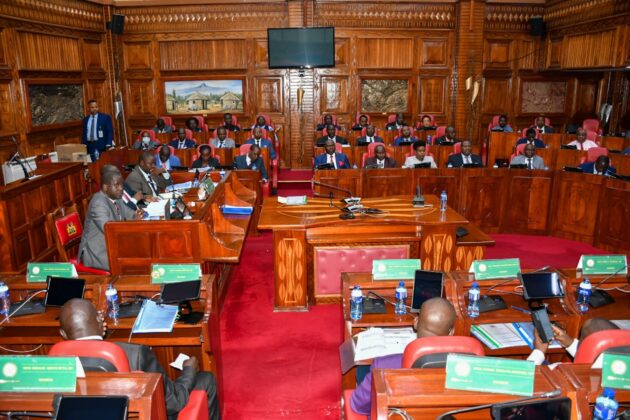
Sharp division emerge on the financing of Sh4tn budget presented by Treasury » Capital News
NAIROBI, Kenya, June 14 – Deep divisions have emerged over the fiscal year 2024/2025 financial budget, with Opposition MPs vowing to dismantle the funding strategies encapsulated in the Finance Bill 2024.
Minority Leader Opiyo Wandayi sharply criticized the Sh4 trillion budget presented by National Treasury Cabinet Secretary Njuguna Ndungu, arguing that it fails to address the persistent budget deficit, resulting in excessive borrowing and heavy taxation.
“The notion of a budget deficit will be our downfall. This administration has exceeded the previous regime in borrowing and in burdening Kenyans with taxes. The government should focus on the productive sectors of the economy instead of taxing everything indiscriminately,” Wandayi stated.
Wandayi insisted that the proposed taxes in the Finance Bill 2024 are draconian. He vowed that the Opposition Coalition would mobilize MPs to defeat these harsh measures once they are tabled in the House.
Despite the Kenya Kwanza Alliance Coalition holding the majority in Parliament, Wandayi assured that the Opposition would employ strategic maneuvers to rally support against the proposed legislation.
“This time we are taking a different approach. We have instructed our Azimio MPs to be physically present. We’ve advised against unnecessary travel, and for those who are ill, we will bring them in to vote,” Wandayi said.
“Several Kenya Kwanza MPs have opposed this finance bill in public gatherings and religious settings. We challenge them to demonstrate their convictions by voting with us.”
Homabay Woman Representative Joyce Bensouda denounced the budget, claiming the government is living beyond its means despite President William Ruto’s rhetoric on austerity measures.
“It’s an overly ambitious budget. When you scrutinize the allocation framework, funds have remained unserviced since 2022. Infrastructure, health, and education are still suffering. One has to question what exactly is being financed,” Bensouda remarked.
Public Service Cabinet Secretary Moses Kuria defended the government’s fiscal policy, highlighting a reduction in the budgetary deficit from 7 percent of GDP to 3.3 percent.
“We are on the right path. The only way to stop digging when in a hole is to halt reckless expenditure. We need to generate sufficient local revenue to fund our budget through fiscal consolidation,” Kuria asserted.
Manyatta MP John Mukunji acknowledged the public outcry against certain provisions in the finance bill but emphasized the necessity of securing resources to fund the budget.
“Kenyans need to understand that the finance bill outlines the sources of funding for the budget. We will consider the provisions of the bill in light of the public’s input, but we cannot discard all the provisions,” Mukunji said.
Kasarani MP Ronald Karauri questioned the government’s revenue-raising strategies, criticizing the Kenya Revenue Authority for failing to meet revenue targets.
“I am not confident in the proposed revenue measures because the last financial bill fell short of raising the required funds. The National Treasury has failed to broaden the tax base, thereby overburdening the current taxpayers,” Karauri said.
“I foresee a revenue shortfall in the upcoming fiscal year because the proposed measures are simply untenable. This will inevitably result in a budget deficit,” he added.
As the debate intensifies, the future of the finance bill hangs in the balance, with both sides of the political spectrum bracing for a contentious battle in the National Assembly.
